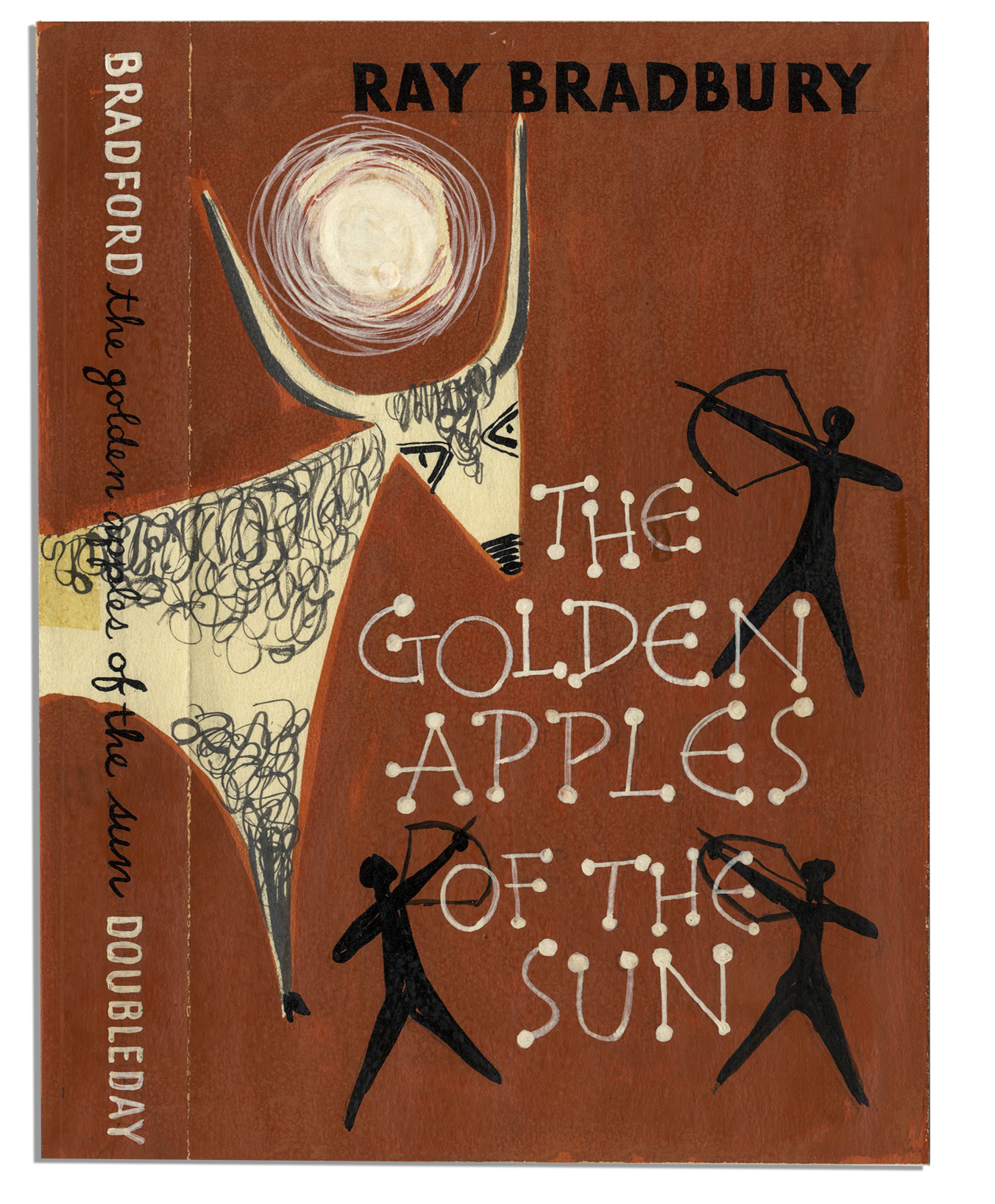
We are simultaneously able to talk faster and make war faster and everyone knows how easy it is to get into a heated argument and then do something one regrets. Bradbury is obviously concerned about the convergence of communications technology and nuclear capability. “The Pedestrian”, “The Flying Machine”, “The Meadow”, and “The Garbage Collector” all depict slightly-exaggerated ideas about the future that will be familiar to anyone who has read Fahrenheit 451.

On a larger scale, Bradbury seems rather ambivalent about how technology is transforming society. And, of course, the protagonists of “A Sound of Thunder” lose their present. In “The Great Wide World Over There”, Cora loses her temporary connection with the rest of the world when her nephew leaves after writing letters for her but not actually teaching her to read or write. The eponymous “April Witch” is torn between her heritage and her love for a mortal, a choice she tries to avoid in vain. In “The Fog Horn”, the monster has lost its potential mate again after waiting millions of years. People are losing their homes, their livelihoods, their dignity.

There is a strong, almost melancholy sense of loss to most of these stories. Bradbury is a master of that space within the science-fiction experience where the writer exaggerates one or two scientific or technological phenomena as a tool for social commentary (“The Meadow” and “The Garbage Collector” are both good examples of this.) In contrast to the rockets and blasters and robots that pervaded Golden Age SF, Bradbury focuses on the everyday. There are a few I can’t quite puzzle out, and a few that are definitely science fiction, but not in the sense that we conceive of science fiction these days. Yet many of the stories here aren’t overtly science fiction. I think of him (and a lot of people, I think, would agree) as a science-fiction author.

It showcases the diversity as well as the sameness of Bradbury’s writing. The Golden Apples of the Sun is an old collection, older than I am.

Now it’s almost the end of the school year-but better late than never! Long after we were finished with Bradbury, I kept my copy of the book, intended to read the rest of the stories “soon”. I found copies of this anthology, which includes “A Sound of Thunder”, and away we went. Anyway, earlier this year I was reaching for short stories to show my sixth form students, and it occurred to me that “A Sound of Thunder” is a damn fine short story, both in a technical and a literary sense. It’s a perk that almost makes those times you accidentally stand under the bell worth it. One of the nice things about working in a school is that I can nick books from the English cupboard, bring them home for a day, or a week, or most of the year, and quietly return them without anyone complaining.


 0 kommentar(er)
0 kommentar(er)
